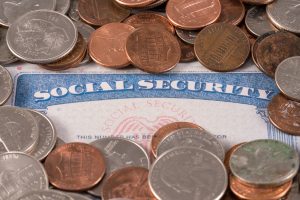Get serious about protecting personal data
By Matilda Charles Senior News Line — September 6, 2024
The word going around is that hackers have stolen 2.9 billion Social Security numbers, which means everyone.
Now it appears all that information, including other personal data, has been released on the internet. That batch of data can include not only Social Security numbers, but names, phone numbers, current and former addresses, and lists of relatives.
It’s time to get very, very serious about protecting our personal data, our identity, our banking information and everything else. Although the horse is out of the barn when it comes to that information being released, there are still steps we can take to try to protect ourselves.
Don’t carry your Social Security card in your wallet. Leave it at home, perhaps in an envelope inside a cabinet where you can access it easily.
Change your passwords. Use not only letters but numbers and symbols in your new passwords.
When you get a Medicare statement about any medical treatment you’ve had, go over it carefully to be certain there’s nothing listed that you didn’t get.
Be more cautious than ever about answering the phone. It’s possible for thieves to fake the number they’re calling from, and they can appear to be from your bank or another company you know. Never answer any questions about your personal information.
Be suspicious about any email you receive that asks for personal information. Don’t click any links and just delete the email.
Send for your credit reports (or get them online) to check all your information. Put a freeze on all three credit bureaus at the same time. Those are TransUnion, Equifax and Experian. With a freeze, no one will be able to open a new account in your name because no one can check your credit. If necessary, you can do a temporary freeze lift if you’re applying for credit somewhere. All three credit bureaus have this option available by phone.
Of all the data breaches we’ve had, this is the worst.
© 2024 King Features Synd., Inc.







